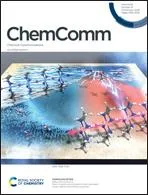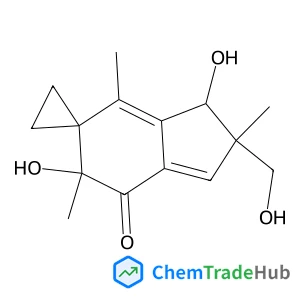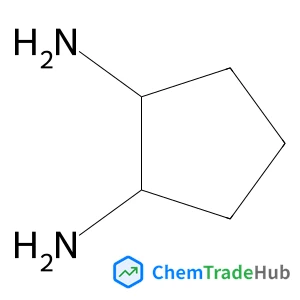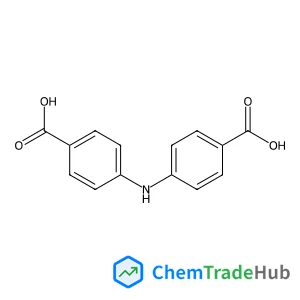From zinco(ii) arsaketenes to silylene-stabilised zinco arsinidene complexes
Literature Information
Ernesto Ballestero-Martínez, Terrance J. Hadlington, Tibor Szilvási, Shenglai Yao, Matthias Driess
The decarbonylation of the first zinco(II) arsaketene complexes LZnAsCO (2) and LZn(AsCO)(NHC) (4) (L = {CH(CMeNDipp)2}−, Dipp = 2,6-iPr2C6H3; NHC = [C(Me)N(iPr)]2C:) has been investigated in the presence of the N-heterocyclic silylenes, tBuNHSi (tBuNHSi = [C(H)N(tBu)]2Si:) and DippNHSi (DippNHSi = [C(H)N(2,6-iPr2-C6H3)]2Si:). Depending on the steric demand of the NHSi donor, dimers or monomers of silylene-stabilised arsinidenes are isolated. The bonding situations in all of the novel arsinidene complexes have been elucidated through X-ray diffraction analyses and theoretical calculations.
Related Literature
IF 6.843
Co9S8 integrated into nitrogen/sulfur dual-doped carbon nanofibers as an efficient oxygen bifunctional electrocatalyst for Zn–air batteriesIF 6.367
Metal–organic frameworks: preparation and applications in highly efficient heterogeneous photocatalysisIF 6.367
Front coverIF 6.843
Carbon and carbon composites obtained using deep eutectic solvents and aqueous dilutions thereofIF 6.222
Water-soluble pH-switchable cobalt complexes for aqueous symmetric redox flow batteriesIF 6.222
Biomimetic hydrogels designed for cartilage tissue engineeringIF 6.843
Sugar ketals as a platform molecule to overcome the limitation of converting biomass into green-hydrocarbons in a typical refineryIF 6.367
Engineering nanoporous organic frameworks to stabilize naked Au clusters: a charge modulation approachIF 6.222
Synthesis and hydrogen evolving catalysis of a panchromatic photochemical molecular deviceIF 6.367
Source Journal
Chemical Communications

ChemComm publishes urgent research which is of outstanding significance and interest to experts in the field, while also appealing to the journal’s broad chemistry readership. Our communication format is ideally suited to short, urgent studies that are of such importance that they require accelerated publication. Our scope covers all topics in chemistry, and research at the interface of chemistry and other disciplines (such as materials science, nanoscience, physics, engineering and biology) where there is a significant novelty in the chemistry aspects. Major topic areas covered include: Analytical Chemistry Catalysis Chemical Biology and medicinal chemistry Computational Chemistry and Machine Learning Energy and sustainable chemistry Environmental Chemistry Green Chemistry Inorganic Chemistry Materials Chemistry Nanoscience Organic Chemistry Physical Chemistry Polymer Chemistry Supramolecular Chemistry
Recommended Compounds
Recommended Suppliers
 Emile Egger & Cie SA
Emile Egger & Cie SA Linde AG, Linde Engineering Division
Linde AG, Linde Engineering Division Loyal Gain International Enterprise Limited
Loyal Gain International Enterprise Limited Daike Chemical Trading Co., Ltd. (Shanghai)
Daike Chemical Trading Co., Ltd. (Shanghai) Taizhou Jia Yin Chemical Co., Ltd.
Taizhou Jia Yin Chemical Co., Ltd. NETZSCH-Feinmahltechnik GmbH
NETZSCH-Feinmahltechnik GmbH Zapata Computing, Inc.
Zapata Computing, Inc. Hobré Instruments bv
Hobré Instruments bv Wuhan Eight Stars Biotechnology Co., Ltd.
Wuhan Eight Stars Biotechnology Co., Ltd. HST Maschinbau GmbH
HST Maschinbau GmbH










![700874-71-1 - 7-[2-(4-Morpholinyl)ethoxy]-4-[2-(2-pyridinyl)-5,6-dihydro-4H-pyrrolo[1,2-b]pyrazol-3-yl]quinoline 700874-71-1 - 7-[2-(4-Morpholinyl)ethoxy]-4-[2-(2-pyridinyl)-5,6-dihydro-4H-pyrrolo[1,2-b]pyrazol-3-yl]quinoline](/structs/700/700874-71-1-fbbc.webp)
![224-53-3 - Dibenzo[c,h]acridine 224-53-3 - Dibenzo[c,h]acridine](/structs/224/224-53-3-97c9.webp)


